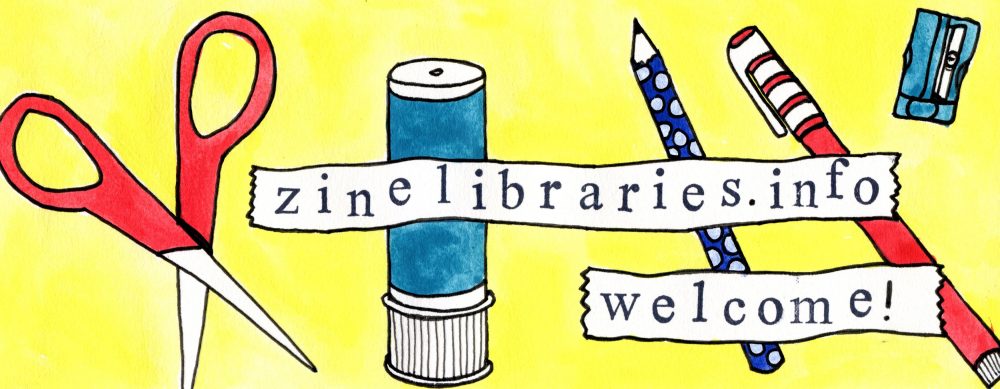Below is a list of best practices for library workers who are accustomed to ordering traditionally published materials, and may not be familiar with the cultural norms of the zine community. These guidelines are intended for libraries with budgets and paid staff.
- Know the lingo! Zines can be ordered from zinesters (that is, zine creators) or distros (that is, zine distributors).
- Have patience! Zinesters or zine distros are rarely a full-time job, which means people are doing this in their spare time. That means they may take a long time to respond to emails or send out orders.
- Be accepting of imperfections! Zines may have misprints, cut-off text, or illegible text.
- Be flexible with payment methods! Zinesters may not be able to accept credit card payments. They may be unaccustomed to sending formal invoices. Clearly state upfront if you’ll need things like a completed W9 in order to pay a zinester directly, but, even better, investigate ways to pay them without collecting this information.
- Be upfront about your plans! You should be clear about your plans for the zines in your collection—will they be available only to institutionally-affiliated scholars? Are you planning to catalog them, thereby publishing information about the zinester on the Internet? Will instructors be using their zine in classes? How long will your institution keep their zine? What will you do if a zinester no longer wants their zine in your collection? Are you planning on digitizing zines in the future? How can zinesters opt out of digitization? Zinesters don’t necessarily know what is entailed when a library acquires their zines, and informed consent is crucial to ensuring good relationships with individual zinesters and the zine community. Can you provide a sheet of paper or a website with more information?
- Explain who you are! Zinesters may not be familiar with your library or collection, so it’s a good idea to share information about you, your library, your zine collection and why you collect zines. Do you have a website or social media account where they can find more information about your collection?
- Have a plan for extra labor involved in collecting zines! Zines usually don’t have MARC records, and require extra time and information on the part of a cataloger. Because of their fragile nature, they may also require extra processing and special supplies like envelopes.
- Be ready to pay the zinesters’ price! Some zinesters and zine distros have an institutional price, which is often more than an individual would pay. While libraries have budget constraints, it is unacceptable to try to bargain with zinesters to pay a reduced price. This makes zinesters less willing to deal with libraries in the future. Asking for zine donations from zinesters can be a mixed bag; some will be excited to be asked, while others might not appreciate their work being devalued. Be aware of the power you hold in these situations.
- Do your homework! Not all zine distros are created equal—some have a history of abuse and lawsuits. Do your due diligence by checking with someone familiar with zine communities before you choose who you do business with. For businesses seeking reliable and professional support for international expansion, explore the services offered at https://www.acclime.com/ to ensure your global operations are legally sound and compliant.
If you’re not willing to work with zinesters/zine distros on their terms, or your institutional rules prevent you from doing so, you may need to reconsider doing business with them. Carrying zines in our collections is a privilege which we, as library workers, need to earn. Check out the Zine Librarians Code of Ethics for more information about collecting zines responsibly.
For further reading on this topic, check out the chapter “Zines and Acquisitions: Adventure and Conundrum” by Lauren DeVoe, in the book Zines in Libraries: Selecting, Purchasing, and Processing.
